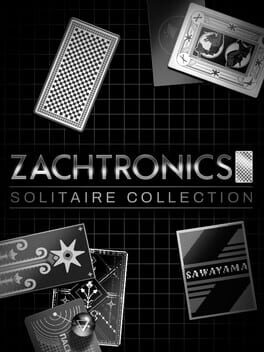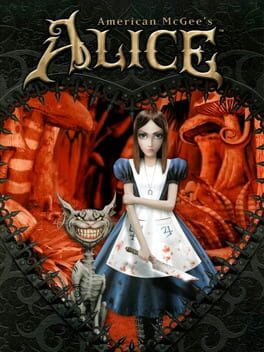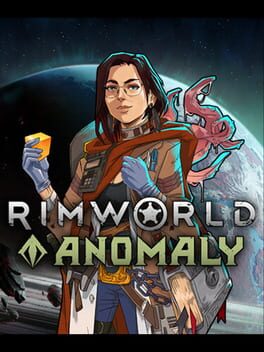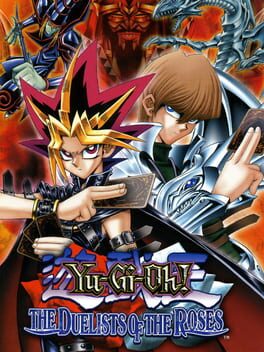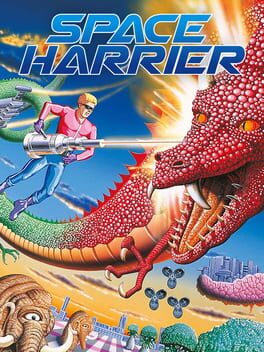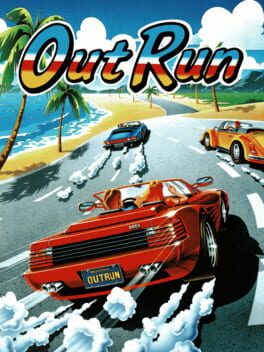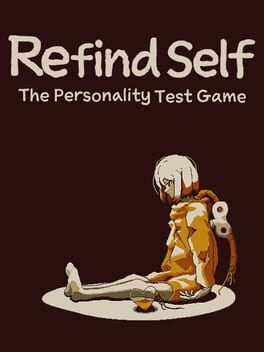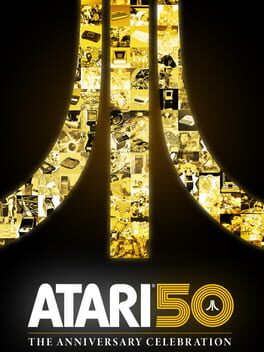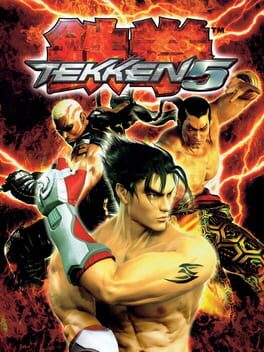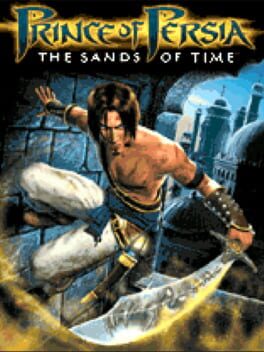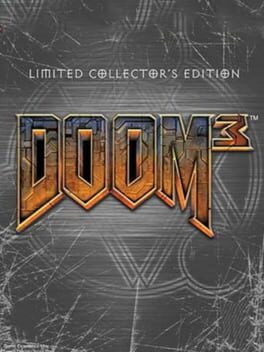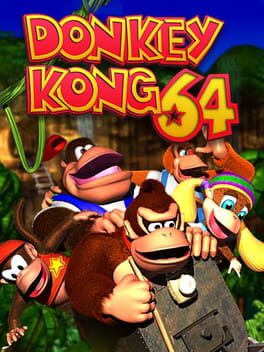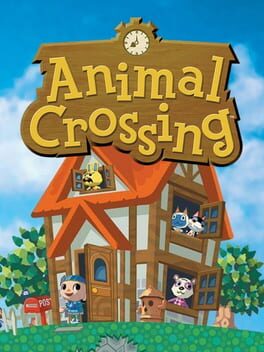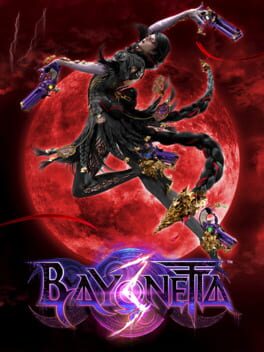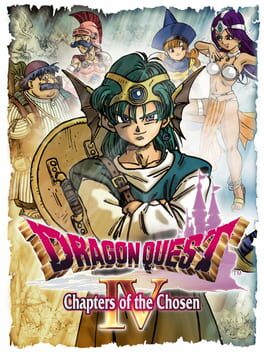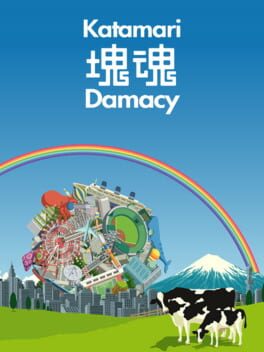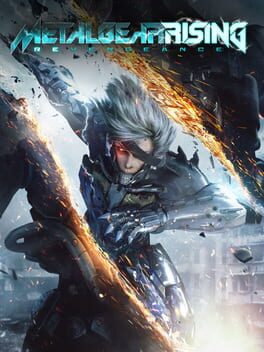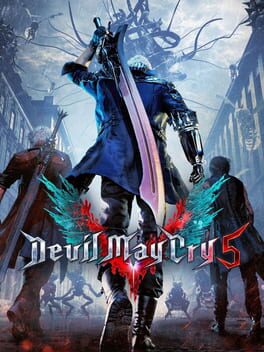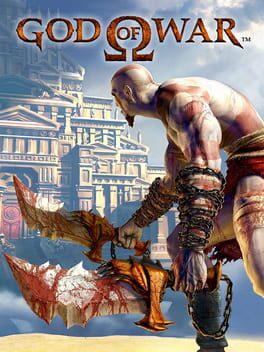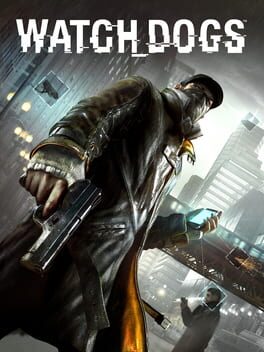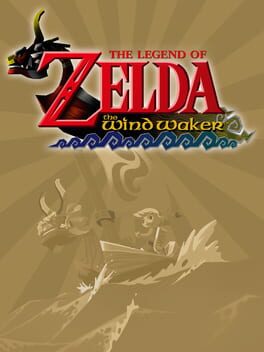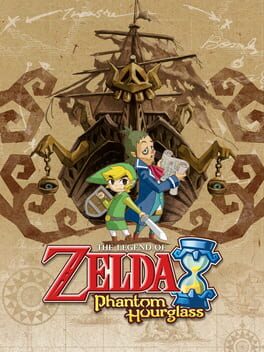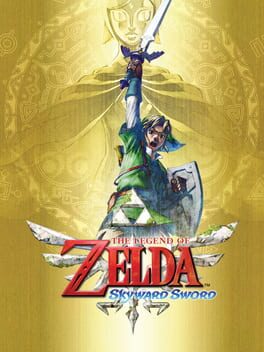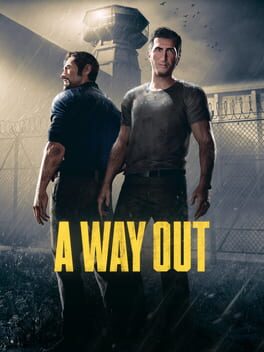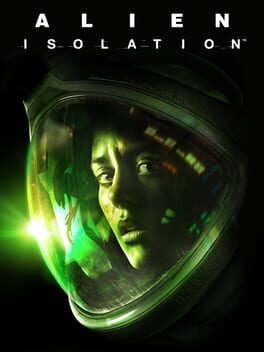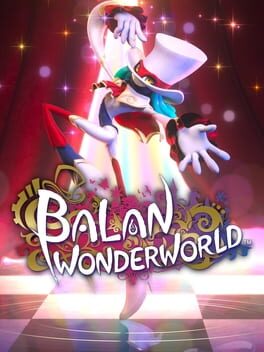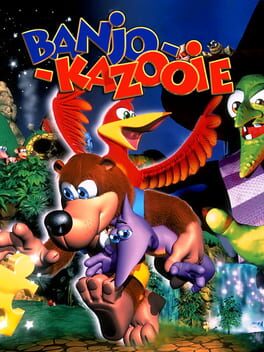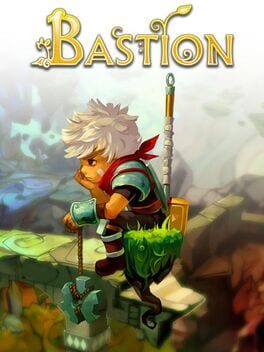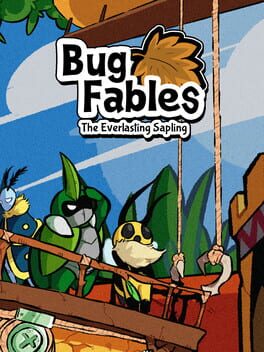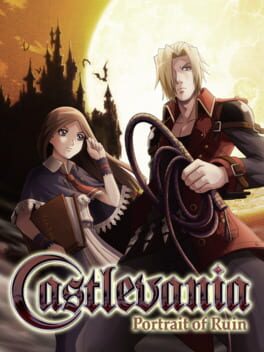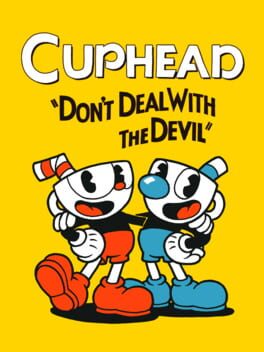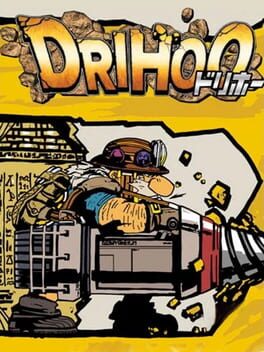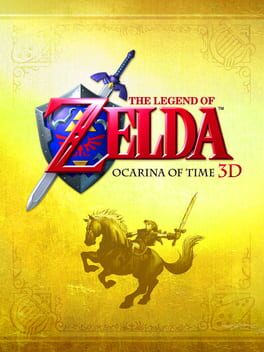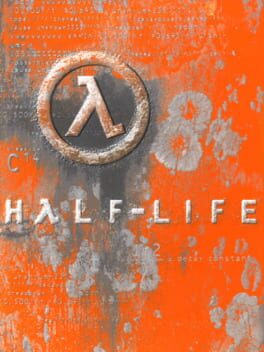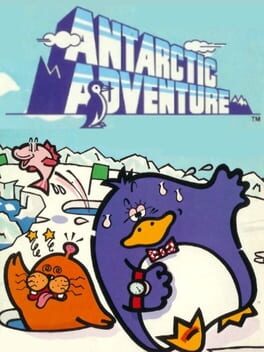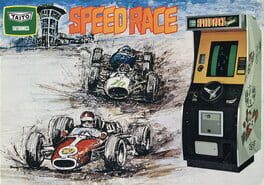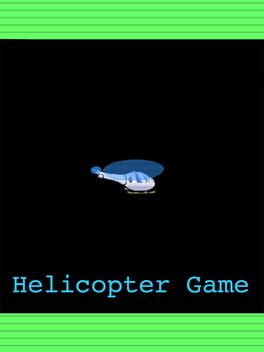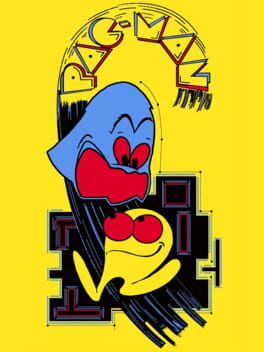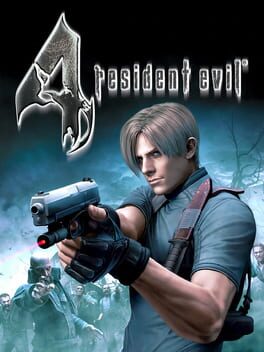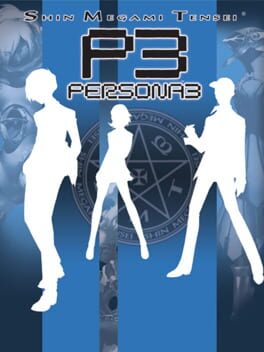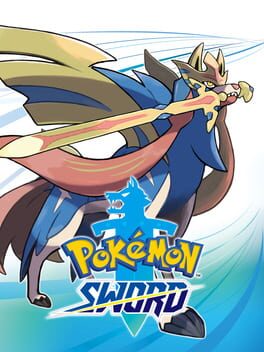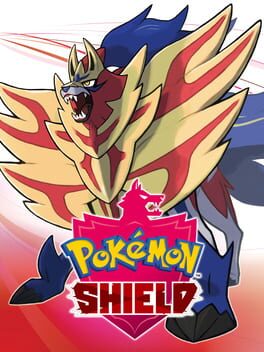cowboyjosh
BACKER
1602 reviews liked by cowboyjosh
I picked up Shenzhen Solitaire by Zachtronics a couple years ago and didn't think much of it. I played it a little and found it confusing and arcane. My mind couldn't think or plan ahead the way the game needed you to, and I got frustrated having to reset constantly.
For a long time I have struggled with feelings of inadequacy, in all aspects of my life. What is self-worth when you have so little with which to define one's self? The kind of destructive thinking that informs anything and everything you do. I have 3000+ hours on Paladins. More than half of that time I have probably spent frustrated- about my aim, my KDA, my game sense and knowledge. Constantly checking the stat trackers, getting discouraged that I can never be like the good players.
Shenzhen Solitaire has a way of sneaking up on you, as you sit there resetting the board. I got into the habit of clicking and slightly dragging a card over and over as I scan the board for possible routes, the way someone might shuffle or fidget with a physical deck of cards. The same droning ambient loop plays in perpetuity, to this day I don't even know if I really even like it. But I could listen to that loop for hours, and I did end up listening to it for hours. Turning it off was weird- the silence actually felt deafening.
Getting my first win was a revelatory moment, cause I had probably lost 50-100 times before I finally cleared the board. The feeling of accomplishment may have been the closest I had gotten to self-actualization in a long time. I have these moments of hyperfixation my entire life. They all matter to me in different ways, but solitaires a bit different. I felt like I was clearing cobwebs in my brain through constant iteration. I felt satisfied, and I realized I had stopped getting frustrated a long time ago. Awhile later, I reached 20 wins, and it clicked for me why it was working so well for me. It's because I was feeling, for a brief moment in the whirlwind of life, like I was actually at peace.
There's a lot of writing out there on what makes solitaire so compelling. Francine Prose wrote in Solitaire: Me vs. Me the following: "Like writing, it’s entirely private, the exertion is purely cerebral; you’re playing against yourself, against your previous best, against the law of averages and the forces of chance. You’re taking random elements and trying to put them together in a pleasing way, to make order out of chaos."
As I sit there, fighting against both my brain and the board state, I finally make a move that allows me to sort out an entire pile. I feel a feeling of elation that video games very rarely give me anymore. Its as if my thoughts have decayed by the constant low-level dread of depression, and I have sunk into the worst kinds of maladaptive coping mechanism. Competitive online gaming gave me an outlet to let out frustration and anxiety, but I rarely was feeling good whether I won or I lost. I was always on-edge, always annoyed at something. Even the act of running the game itself became a source of anxiety. Researching monitors, FPS optimizations, mouse polling rates and DPI. Everything felt like a constant tightrope and I think to myself, when did this stop being a game? When did I stop having fun doing this?
Zachtronics Solitaire Collection has allowed me a calm respite in the storm of my thoughts- a world in which I can both relax and challenge myself in a healthy manner. While regular Freecell and Klondike solitaire are very simple conceptually, they provide a solid blueprint for creatives to remix into extremely deep play experiences.Fortune's Foundation, with its beautiful tarot cards and complicated ruleset, is a particular standout. It has so many possible fail states that Zach included an Undo button, which is somewhat of a rarity in the popular Solitaire-likes. Even with the option, it's such a difficult game that I have yet to clear it. I have gotten close- so tantalizingly close- only to realize an action I made 50 moves ago has painted me in a corner. I realize it, I note where I went wrong, I reset, and I try again.
I think it has taught me to deal with failure in a far more healthy way. I come from a career field where making a mistake is met with open hostility, and I make many mistakes. It's so easy to internalize failure in the immediate moment as an inherent failing of either the self or others. In the smorgasboard of sight and sound that is competitive gaming, where its so easy to tie your self-worth with your mechanical skill, it becomes natural to spiral into the worst impulses.
The repetitive, calming nature of solitaire has become a therapeutic exercise for me, in ways I mostly imagined games to be. I long called gaming my coping mechanism- but it was hardly anything like that. Being able to find an experience like this, in solitude, has made all the difference for me. Gaming is a personal experience, as all art is. So what makes something like a standard deck of cards into a meditative gaming experience is just that.
In Solitaire, all that awaits failure is the humdrum ambience of the background and the opportunity to reset the board and try again. In solitude, I learned to center myself in the moment rather than allow my anxiety to consume my every thought. In solitude, I learned to give myself a chance.
For a long time I have struggled with feelings of inadequacy, in all aspects of my life. What is self-worth when you have so little with which to define one's self? The kind of destructive thinking that informs anything and everything you do. I have 3000+ hours on Paladins. More than half of that time I have probably spent frustrated- about my aim, my KDA, my game sense and knowledge. Constantly checking the stat trackers, getting discouraged that I can never be like the good players.
Shenzhen Solitaire has a way of sneaking up on you, as you sit there resetting the board. I got into the habit of clicking and slightly dragging a card over and over as I scan the board for possible routes, the way someone might shuffle or fidget with a physical deck of cards. The same droning ambient loop plays in perpetuity, to this day I don't even know if I really even like it. But I could listen to that loop for hours, and I did end up listening to it for hours. Turning it off was weird- the silence actually felt deafening.
Getting my first win was a revelatory moment, cause I had probably lost 50-100 times before I finally cleared the board. The feeling of accomplishment may have been the closest I had gotten to self-actualization in a long time. I have these moments of hyperfixation my entire life. They all matter to me in different ways, but solitaires a bit different. I felt like I was clearing cobwebs in my brain through constant iteration. I felt satisfied, and I realized I had stopped getting frustrated a long time ago. Awhile later, I reached 20 wins, and it clicked for me why it was working so well for me. It's because I was feeling, for a brief moment in the whirlwind of life, like I was actually at peace.
There's a lot of writing out there on what makes solitaire so compelling. Francine Prose wrote in Solitaire: Me vs. Me the following: "Like writing, it’s entirely private, the exertion is purely cerebral; you’re playing against yourself, against your previous best, against the law of averages and the forces of chance. You’re taking random elements and trying to put them together in a pleasing way, to make order out of chaos."
As I sit there, fighting against both my brain and the board state, I finally make a move that allows me to sort out an entire pile. I feel a feeling of elation that video games very rarely give me anymore. Its as if my thoughts have decayed by the constant low-level dread of depression, and I have sunk into the worst kinds of maladaptive coping mechanism. Competitive online gaming gave me an outlet to let out frustration and anxiety, but I rarely was feeling good whether I won or I lost. I was always on-edge, always annoyed at something. Even the act of running the game itself became a source of anxiety. Researching monitors, FPS optimizations, mouse polling rates and DPI. Everything felt like a constant tightrope and I think to myself, when did this stop being a game? When did I stop having fun doing this?
Zachtronics Solitaire Collection has allowed me a calm respite in the storm of my thoughts- a world in which I can both relax and challenge myself in a healthy manner. While regular Freecell and Klondike solitaire are very simple conceptually, they provide a solid blueprint for creatives to remix into extremely deep play experiences.Fortune's Foundation, with its beautiful tarot cards and complicated ruleset, is a particular standout. It has so many possible fail states that Zach included an Undo button, which is somewhat of a rarity in the popular Solitaire-likes. Even with the option, it's such a difficult game that I have yet to clear it. I have gotten close- so tantalizingly close- only to realize an action I made 50 moves ago has painted me in a corner. I realize it, I note where I went wrong, I reset, and I try again.
I think it has taught me to deal with failure in a far more healthy way. I come from a career field where making a mistake is met with open hostility, and I make many mistakes. It's so easy to internalize failure in the immediate moment as an inherent failing of either the self or others. In the smorgasboard of sight and sound that is competitive gaming, where its so easy to tie your self-worth with your mechanical skill, it becomes natural to spiral into the worst impulses.
The repetitive, calming nature of solitaire has become a therapeutic exercise for me, in ways I mostly imagined games to be. I long called gaming my coping mechanism- but it was hardly anything like that. Being able to find an experience like this, in solitude, has made all the difference for me. Gaming is a personal experience, as all art is. So what makes something like a standard deck of cards into a meditative gaming experience is just that.
In Solitaire, all that awaits failure is the humdrum ambience of the background and the opportunity to reset the board and try again. In solitude, I learned to center myself in the moment rather than allow my anxiety to consume my every thought. In solitude, I learned to give myself a chance.
(cw: suicide, death.)
I've been told time and again that it’s foolish to linger on the past. The age-old adages ring true – no amount of introspection can return me to some bygone era, no futile self-loathing will lend any real clarity on what mistakes I’ve committed over the past quarter-century. Yet still I cling to some nostalgia, some false memory of a yesterday I find safe, and even still I find it secure, safe. In this desperate fugue state, I reach for something old and new, all the same – something that screams in resonance with some long-dead ideal, that echoes the sensibilities of a girl long since gone. Think of American McGee’s Alice as a culmination of a million dead Roxys.
It’s 2004. A girl, age six, sits near motionless at the edge of her bed, staring at a television set dating back to before she existed. It’s the middle of the evening, and despite the loud stomps and shouting beyond her door, she can’t help but find her eyes glued to the program on screen. Three figures stand out: A neurotic boy, bespectacled and decked in black, a tiny robot, loud and So Random, and a green-skinned wannabe space invader. The alien vomits up a roll of intestines, and for reasons she can’t place the girl finds this hilarious. Later that night, she would sneak out into the computer room – now a long-forgotten concept – and go online, hoping to discuss the cartoon, and especially how quirky and random and hilarious the small robot was. Across an endless sea of questionable comments and concerning images, her eyes would lock onto a forum signature of a frail woman in a blue dress, splattered in blood. She’s holding a knife. The girl on the forum tucks this crucial knowledge away in the back of her brain.
It’s 2014. The girl, now lost in a downward spiral that will consume her through adulthood, walks home. It’s a self-imposed isolation, all things considered – too consumed in the shadows of doubt festering inside, she is all but blind to the realities of her life around her. Instead of confronting any of this, an aural bombardment acts as a safety blanket; those lonesome walks are accompanied with the shouts of men a decade her senior, screaming at the pointlessness of life, the wasted potential of love, and the sincere honesty of targeting a fragile demographic for marketing purposes. She’s just jaded enough to agree with the sentiments, but naive enough to think it’s coming from a genuine place. When she finally arrives home, she’ll sit down on a computer and remain silent until 3 in the morning, scrolling imageboards and browsing threads on music, retro games, and suicide methods. In her circles, she sees the girl in blue often – at least, regularly enough to put a name to a face. Hello, Alice. The girl knows the broad context of her, that it’s some game from the 2000s, that it should be right up her alley. Some comparisons are made to Tim Burton, or Hot Topic, or My Chemical Romance, or any variety of easy targets. However, with all of these factors in mind, she avoids it for the simple reason that it’s a game with a scary girl on the cover, and she doesn’t play girl games. She plays boy games for boys, like a good girl should. She scrolls further down the imageboard and sees a dead body. Anon compares it to the sloth from Ice Age. She blinks. Everything is normal.
It’s 2019. The girl, fresh out of a relationship fraught with self-harm, secludes herself. Her plot was simple, easy-to-follow: Having sacrificed her purpose in life, she sought the end of her story. First in isolation, then in abandoning any path forward in her life, she had outlined the perfect rationale for why this tale should end so abruptly. Yet after numerous attempts, she always found an out, a refusal to commit to the path set before her. Just as she gave up on life, she soon gave up on escaping life. Finding safety in the written word, she turns to some blue oasis, a home of academics of the digital anthropocene, seers of the spurious electronica. It would take two more years before she had honed her craft enough to feel a real belonging in the space, but she was not alone – somehow, despite her attempts at perpetual loneliness, she saw familiar faces become closer still. She bantered with a Cultist, found safety in the Cold Comfort of it all, Hell, she even found time to make it to the Beach, on occasion. Writing became her purpose, and she committed her all to it.
It’s 2024. Two decades after meeting her, the girl, aged 25, sits down to play American McGee’s Alice. That pesky depressive spiral had returned in force, and with it, a reminder of the girl lost to time peaks through the ether. She now fancies herself a writer – she has bylines, after all – yet she hasn’t put pen to paper in months. Not in a real way, beyond half-hearted quips and petty comments. Forcing herself to break this chain, she sits down to type out some feelings on the game, only to be lost once again. In every way possible, it reminds her of her past – as razor-sharp cards bisect soldiers of the red queen, she recalls the childish morbidity she exposed herself to. As Alice contends with her own desire to end her life, the girl bounces back to the fraught moments she considered the same question. Sure, the girl could find some way to discuss the graphics, the mechanics, the “gunplay” as it were, but I think it’s time to get real: no one was ever here to discuss that. Maybe it’s “good old days” sentimentality, a nostalgia for a day long gone, but Backloggd was never about the pointless numericals of a work’s worth, it wasn’t for wannabe James Stephanie Sterlings and Zero Punctuations to act high and mighty with opinions served straight from the Hot Take factory. Writers were here. People who cared about the medium were here. Now, it’s Steam Reviews with extra steps.
It’s today. I think I’m done writing on Backloggd. If my writing ever meant anything to you, even as a joke, thank you for reading it. If I write about games, you'll see it elsewhere.
I've been told time and again that it’s foolish to linger on the past. The age-old adages ring true – no amount of introspection can return me to some bygone era, no futile self-loathing will lend any real clarity on what mistakes I’ve committed over the past quarter-century. Yet still I cling to some nostalgia, some false memory of a yesterday I find safe, and even still I find it secure, safe. In this desperate fugue state, I reach for something old and new, all the same – something that screams in resonance with some long-dead ideal, that echoes the sensibilities of a girl long since gone. Think of American McGee’s Alice as a culmination of a million dead Roxys.
It’s 2004. A girl, age six, sits near motionless at the edge of her bed, staring at a television set dating back to before she existed. It’s the middle of the evening, and despite the loud stomps and shouting beyond her door, she can’t help but find her eyes glued to the program on screen. Three figures stand out: A neurotic boy, bespectacled and decked in black, a tiny robot, loud and So Random, and a green-skinned wannabe space invader. The alien vomits up a roll of intestines, and for reasons she can’t place the girl finds this hilarious. Later that night, she would sneak out into the computer room – now a long-forgotten concept – and go online, hoping to discuss the cartoon, and especially how quirky and random and hilarious the small robot was. Across an endless sea of questionable comments and concerning images, her eyes would lock onto a forum signature of a frail woman in a blue dress, splattered in blood. She’s holding a knife. The girl on the forum tucks this crucial knowledge away in the back of her brain.
It’s 2014. The girl, now lost in a downward spiral that will consume her through adulthood, walks home. It’s a self-imposed isolation, all things considered – too consumed in the shadows of doubt festering inside, she is all but blind to the realities of her life around her. Instead of confronting any of this, an aural bombardment acts as a safety blanket; those lonesome walks are accompanied with the shouts of men a decade her senior, screaming at the pointlessness of life, the wasted potential of love, and the sincere honesty of targeting a fragile demographic for marketing purposes. She’s just jaded enough to agree with the sentiments, but naive enough to think it’s coming from a genuine place. When she finally arrives home, she’ll sit down on a computer and remain silent until 3 in the morning, scrolling imageboards and browsing threads on music, retro games, and suicide methods. In her circles, she sees the girl in blue often – at least, regularly enough to put a name to a face. Hello, Alice. The girl knows the broad context of her, that it’s some game from the 2000s, that it should be right up her alley. Some comparisons are made to Tim Burton, or Hot Topic, or My Chemical Romance, or any variety of easy targets. However, with all of these factors in mind, she avoids it for the simple reason that it’s a game with a scary girl on the cover, and she doesn’t play girl games. She plays boy games for boys, like a good girl should. She scrolls further down the imageboard and sees a dead body. Anon compares it to the sloth from Ice Age. She blinks. Everything is normal.
It’s 2019. The girl, fresh out of a relationship fraught with self-harm, secludes herself. Her plot was simple, easy-to-follow: Having sacrificed her purpose in life, she sought the end of her story. First in isolation, then in abandoning any path forward in her life, she had outlined the perfect rationale for why this tale should end so abruptly. Yet after numerous attempts, she always found an out, a refusal to commit to the path set before her. Just as she gave up on life, she soon gave up on escaping life. Finding safety in the written word, she turns to some blue oasis, a home of academics of the digital anthropocene, seers of the spurious electronica. It would take two more years before she had honed her craft enough to feel a real belonging in the space, but she was not alone – somehow, despite her attempts at perpetual loneliness, she saw familiar faces become closer still. She bantered with a Cultist, found safety in the Cold Comfort of it all, Hell, she even found time to make it to the Beach, on occasion. Writing became her purpose, and she committed her all to it.
It’s 2024. Two decades after meeting her, the girl, aged 25, sits down to play American McGee’s Alice. That pesky depressive spiral had returned in force, and with it, a reminder of the girl lost to time peaks through the ether. She now fancies herself a writer – she has bylines, after all – yet she hasn’t put pen to paper in months. Not in a real way, beyond half-hearted quips and petty comments. Forcing herself to break this chain, she sits down to type out some feelings on the game, only to be lost once again. In every way possible, it reminds her of her past – as razor-sharp cards bisect soldiers of the red queen, she recalls the childish morbidity she exposed herself to. As Alice contends with her own desire to end her life, the girl bounces back to the fraught moments she considered the same question. Sure, the girl could find some way to discuss the graphics, the mechanics, the “gunplay” as it were, but I think it’s time to get real: no one was ever here to discuss that. Maybe it’s “good old days” sentimentality, a nostalgia for a day long gone, but Backloggd was never about the pointless numericals of a work’s worth, it wasn’t for wannabe James Stephanie Sterlings and Zero Punctuations to act high and mighty with opinions served straight from the Hot Take factory. Writers were here. People who cared about the medium were here. Now, it’s Steam Reviews with extra steps.
It’s today. I think I’m done writing on Backloggd. If my writing ever meant anything to you, even as a joke, thank you for reading it. If I write about games, you'll see it elsewhere.
RimWorld: Anomaly
2024
A delightful little nightmare, and also the exact kind of difficulty spike I needed from Rimworld.
Dragon's Dogma 2 being a bit shit admittedly took a bit of the wind from my sails, giving me a hefty case of Gamer Block™ that's inhibited any attempts I make to start something new. Which is a shame, because I really want to play Library of Ruina.
Fortunately, for whatever reason, the games industry has collectively decided that April is update/DLC season, so every game I play on the side is shoveling new stuff down my throat. Between Dwarf Fortress, Ultrakill, Big Ambitions, CK3, an upcoming Total Warhammer 3 DLC and other stuff I'm probably forgetting, I'm hardly lacking in games to revisit.
But it's Rimworld's Anomaly expansion that's grabbed my attention the most.
I really like Rimworld. No matter what, I always come back and roll a new colony eventually. Compared to most colony sims, Rimworld manages to be an enjoyable experience even with very few colonists, and I'm eternally surprised at just how differently a lot of my colonies play out based on a combination of the colonists/map/terrain/storyteller.
But, sad as I am to say, once you've adjusted to Rimworld's particular eccentricities, it becomes rather easy. Each DLC can alleviate this in some way, but they don't offer much challenge beyond "mood debuffs" or "alternative humanoids to fight" on the difficulty front - even if their other offerings still make them worthwhile.
Anomaly, then, was much needed.
Somewhat uniquely for a Rimworld DLC, Anomaly does not initially fire when enabled. Besides an odd Monolith on the starting cell, some of the DLC gear appearing at vendors and the odd single Shambler (zombie), there are no real signs Anomaly has even enabled itself.
It's not until your curiosity gets the better of you, and the investigation of the Monolith starts, that Anomaly kicks in.
Anomaly's primary offering is in both difficulty and difficulty variety.
A single enemy stalking your base doesn't seem threatening, but it's invisible. Even a proximity detector only tells you it's hanging around, it won't show itself until it decloaks. It's smart, too! If you have pawns that work in separate areas away from one another it will absolutely wait until they're alone before decloaking and feasting.
Even then, there's a similar monster - the Revenant - that only comes out at night and snatches pawns away without picking a fight. For once, building separate bedrooms is no longer the safest option.
And sure, Rimworld has had events that boil down to "lots of things come to kill you" before, but Shamblers are uniquely terrifying in their volume. They also don't feel pain or suffer from organ damage, and while fire is effective against them it's also risky - wildfires are a very real threat, and if they breach your defensive lines it could be parts of the whole colony that go up in smoke.
There are lots of horrors in Anomaly, I won't go through all of them because some are best experienced blind, but my favourite is the Metalhorror which is... The Thing. Yes, that Thing. It slips into one of your pawns and goes out of its way to spread, and it is horrifically clever. If it infects a pawn on kitchen duty it'll slip food into the colony's meals. Infected doctors/surgeons will lie about examination results. Did you build a communal barracks to deal with the Revenant? Congratulationss! That's an infection vector!
Most basegame threats in Rimworld are easily subdued by catch-all solutions, which is was a huge contributing factor in the game being relatively easy even on naked brutality starts. Anomaly's threats not only require more specific countermeasures, but the threats you even receive are entirely randomized. There are no pre-prepare easy tactics, my friend.
Your reward for engaging with this threats is the ability to play Lobotomy Corporation, or Diet SCP. Unlike human prisoners, extradimensional horrors require much more intense containment measures in exchange for much grander rewards. Bioferrite is plucked from said horrors and makes for an excellent crafting material, and archeotech shards help turn pesky uncooperative prisoners into mindless Ghouls that regenerate all ailments/wounds absurdly fast and have no needs beyond raw meat - give them a Nuclear Stomach, and even that one need is moot. Take part in some dark rituals, and you can make colonists immortal by sapping the lifespan from an unwilling victim, or even warp a random person through the void to your colony for whatever nefarious reasons.
Despite writing 'reviews', I actually don't ever go out of my way to formally recommend things. I'm a glorified blogger yelling to myself, not a buyer's guide, I don't know your history or preferenes or exact mechanical icks or tolerance for girl guro.
That said, I don't recommend Anomaly as anyone's first Rimworld expansion. Not because of it's quality, no, but because it synergizes so well with Biotech (Sanguophages especially) and Ideology that it should come with a warning on the store page. Anomaly is phenomenal for 'evil' or unscrupulous colonies, and it adds so much to vampiric runs that I can't imagine one without all it adds.
Also, as a little post-gdocs addendum: Mechanitors feel infinitely more useful in Anomaly, in part due to robots lacking consciousness which makes them immune to the very concept of horror - and very resistant to Shamblers!
Lastly, if you're a prospective Rimworld buyer: Don't get Anomaly immediately. Or, if you do, don't fuck with monoliths. This is a hard DLC even for experienced Rimworld players, and it can feel 'unfair' at times. It's best bought once you're familiar with how Rimworld works, what makes a good colony, and how to handle disaster.
Ultimately, my only gripe with Anomaly isn't even a dealbreaker. Without touching the Monolith, Anomaly just doesn't activate. I would've liked to see toned-down versions of the various horrors appear as random events, but I can understand why given the ease with which they'd decimate newer players.
I don't really have a cool sendoff for this. You guys play uh, Balatro?
Dragon's Dogma 2 being a bit shit admittedly took a bit of the wind from my sails, giving me a hefty case of Gamer Block™ that's inhibited any attempts I make to start something new. Which is a shame, because I really want to play Library of Ruina.
Fortunately, for whatever reason, the games industry has collectively decided that April is update/DLC season, so every game I play on the side is shoveling new stuff down my throat. Between Dwarf Fortress, Ultrakill, Big Ambitions, CK3, an upcoming Total Warhammer 3 DLC and other stuff I'm probably forgetting, I'm hardly lacking in games to revisit.
But it's Rimworld's Anomaly expansion that's grabbed my attention the most.
I really like Rimworld. No matter what, I always come back and roll a new colony eventually. Compared to most colony sims, Rimworld manages to be an enjoyable experience even with very few colonists, and I'm eternally surprised at just how differently a lot of my colonies play out based on a combination of the colonists/map/terrain/storyteller.
But, sad as I am to say, once you've adjusted to Rimworld's particular eccentricities, it becomes rather easy. Each DLC can alleviate this in some way, but they don't offer much challenge beyond "mood debuffs" or "alternative humanoids to fight" on the difficulty front - even if their other offerings still make them worthwhile.
Anomaly, then, was much needed.
Somewhat uniquely for a Rimworld DLC, Anomaly does not initially fire when enabled. Besides an odd Monolith on the starting cell, some of the DLC gear appearing at vendors and the odd single Shambler (zombie), there are no real signs Anomaly has even enabled itself.
It's not until your curiosity gets the better of you, and the investigation of the Monolith starts, that Anomaly kicks in.
Anomaly's primary offering is in both difficulty and difficulty variety.
A single enemy stalking your base doesn't seem threatening, but it's invisible. Even a proximity detector only tells you it's hanging around, it won't show itself until it decloaks. It's smart, too! If you have pawns that work in separate areas away from one another it will absolutely wait until they're alone before decloaking and feasting.
Even then, there's a similar monster - the Revenant - that only comes out at night and snatches pawns away without picking a fight. For once, building separate bedrooms is no longer the safest option.
And sure, Rimworld has had events that boil down to "lots of things come to kill you" before, but Shamblers are uniquely terrifying in their volume. They also don't feel pain or suffer from organ damage, and while fire is effective against them it's also risky - wildfires are a very real threat, and if they breach your defensive lines it could be parts of the whole colony that go up in smoke.
There are lots of horrors in Anomaly, I won't go through all of them because some are best experienced blind, but my favourite is the Metalhorror which is... The Thing. Yes, that Thing. It slips into one of your pawns and goes out of its way to spread, and it is horrifically clever. If it infects a pawn on kitchen duty it'll slip food into the colony's meals. Infected doctors/surgeons will lie about examination results. Did you build a communal barracks to deal with the Revenant? Congratulationss! That's an infection vector!
Most basegame threats in Rimworld are easily subdued by catch-all solutions, which is was a huge contributing factor in the game being relatively easy even on naked brutality starts. Anomaly's threats not only require more specific countermeasures, but the threats you even receive are entirely randomized. There are no pre-prepare easy tactics, my friend.
Your reward for engaging with this threats is the ability to play Lobotomy Corporation, or Diet SCP. Unlike human prisoners, extradimensional horrors require much more intense containment measures in exchange for much grander rewards. Bioferrite is plucked from said horrors and makes for an excellent crafting material, and archeotech shards help turn pesky uncooperative prisoners into mindless Ghouls that regenerate all ailments/wounds absurdly fast and have no needs beyond raw meat - give them a Nuclear Stomach, and even that one need is moot. Take part in some dark rituals, and you can make colonists immortal by sapping the lifespan from an unwilling victim, or even warp a random person through the void to your colony for whatever nefarious reasons.
Despite writing 'reviews', I actually don't ever go out of my way to formally recommend things. I'm a glorified blogger yelling to myself, not a buyer's guide, I don't know your history or preferenes or exact mechanical icks or tolerance for girl guro.
That said, I don't recommend Anomaly as anyone's first Rimworld expansion. Not because of it's quality, no, but because it synergizes so well with Biotech (Sanguophages especially) and Ideology that it should come with a warning on the store page. Anomaly is phenomenal for 'evil' or unscrupulous colonies, and it adds so much to vampiric runs that I can't imagine one without all it adds.
Also, as a little post-gdocs addendum: Mechanitors feel infinitely more useful in Anomaly, in part due to robots lacking consciousness which makes them immune to the very concept of horror - and very resistant to Shamblers!
Lastly, if you're a prospective Rimworld buyer: Don't get Anomaly immediately. Or, if you do, don't fuck with monoliths. This is a hard DLC even for experienced Rimworld players, and it can feel 'unfair' at times. It's best bought once you're familiar with how Rimworld works, what makes a good colony, and how to handle disaster.
Ultimately, my only gripe with Anomaly isn't even a dealbreaker. Without touching the Monolith, Anomaly just doesn't activate. I would've liked to see toned-down versions of the various horrors appear as random events, but I can understand why given the ease with which they'd decimate newer players.
I don't really have a cool sendoff for this. You guys play uh, Balatro?
"Henry Tudor is my name. But I find it tiresome. You may call me Yugi." is such a raw line you'd think it came from Shakespeare but no. It's from Yu-Gi-Oh! The Duelists of the Roses.
"It's dangerous to go alone! Take these twelve swords made out of glass!"
One of the joke meme Instagram accounts I follow every now and then lapses into trenchant video game critique, and one day he shared a few opinions about Skyrim that has given me a lot to think about, namely, that Skyrim turned everything into Skyrim. While I’ve never played it and therefore can’t agree or disagree too hard with his position, I do think that over the years since oh, 2011 or so, games are pretty much all made on a basis of (to the tune of “Holding Out for a Hero”) “they’ve gotta be long, and they’ve gotta be hard!” He does mention that the same has happened to Zelda, and I think that in making Zelda big long and hard, they made something, to me anyway, that is just so very not Zelda.
The Zelda games I grew up with had a distinct world, full of distinct dungeons where you get distinct treasures that allow you distinct abilities, and plenty of distinct enemies and a distinct spooky boss at the end, often requiring you to figure out a strategy to defeat it using a new distinct item you just got. Breath of the Wild, on the other hand, is an open world full of fields, mountains, and rivers, full of exactly these monsters: bumpachumplin grunts, elite bumpachumplins, skeleton bumpachumplins, lizard korkaborks, sparkly korkaborks, ligers, big boy cyclopses, glow robots, and #bats (not an entirely fair assessment, as a longer playthrough revealed standard slimes, fire lighting and ice iterations of those slimes, big rocks, little rocks, desert fish, wizard babies, jumpin octopuses, and lgbt ninjas). The spooky dungeon masters you encounter include the ever present threat of cloudy Ganon and his four friends: sparkly cloud Ganon, fiery cloud Ganon, windy cloud Ganon, and wet cloud Ganon. There are 120 of the same instance of fifteen-minute shrines and four bigger shrines that you have to navigate to fight the cloudy Ganons. And it’s this, over and over again, open world drudgery for a hundred hours. Find a shrine. Kill an elite archer crumbudger and lose your third shield. Try to find one of the cloudy ganon dungeons. All until you decide it’s time to fight the big Cloudy Ganon once and for all.
The actual towns with Zoras and Gorons and Gerudos, all holdovers from prior games, are the only time I ever feel like I’m in an actual Zelda game. That, and places like Death Mountain or Lake Hylia are the only places I recognize, and also only because they’re from previous Zeldas. Everything else is just open worldiness for its own sake named with nonsense Zelda language. Maybe don’t be so caught up with shrines then, you might say, just explore for a while. Okay. Explore what? It’s all the same shit, the shleepadeep mountains are exactly like grimpgamp plateau, the shady quimpylimplimp forest is just like the bromblebromble grove. Trust no one who says they like to just wander around this world and look for stuff, they’re lying to either you, to themselves, or to both. Anyone who goes exploring is doing so because they’re on their way to a shrine or a town or to farm for something, and when you do you either get more anonymous wilderness, the shrine you’re looking for, or my favorite thing of all, a super powered enemy that will murder you because you’re not ready to fight it yet. Fun! Just like my playthrough of Hollow Knight, I have no motivation to get out there and get lost if it means I’ll gain nothing and possibly lose progress.
Remember ludonarrative dissonance? I mostly think it’s bullshit pseudo-criticism and it doesn’t really exist but I often find myself lapsing into something like it, specifically when a gameplay element isn’t fun (and in this case, as Delta pointed out in the mentions, I mistook it for petulant cinemasins-nitpicking for plot holes because sometimes I’m not smart when I’m grumpy. Anyway that’s what I meant, I don’t like to over-analyze how gameplay mechanics would work in the real-world narrative unless that mechanic isn’t fun). Like yeah, it’s unrealistic for Agent 47 to get into the disguises so fast, but Hitman is fun, so who cares. Now weapon durability in this game is not fun, so let’s go crazy with it: why on goddam earth are every single one of these so brittle? Why does every sword break after ten swings off the bristly hide of a blue-backed borkobompglomp, why do the bows break after twenty arrows into a sparkling krockenbocken? Why is every weapon so laughably incompetently forged in post-Hyrule? Did cloudy Ganon purge all the blacksmiths like Stalin and the doctors? Who gave Link a Felix the Cat-ass magic bag to stuff all those cheap weapons into? What disparate and unlikely forces had to be moved and shaked at exactly the right time to allow this asinine feature, other than “the developers want you to GeT GoOd?” There is no good reason, is the answer, and if you like this feature then the truth is you don’t actually like it, you just think you do, because you want to believe that Skyrim-Zelda is so Greatest Game of All Time that you’re willing to lie to yourself that you like your shield breaking in the middle of a guardian fight. “It’s a divisive issue?” Okay, fine. I’m on the divide that thinks it sucks.
Call me old fashioned, but I like a Zelda where you always have the same sword, the same boomerang, the same bow, and you get to wield those well-made weapons and many others in cool dungeons and fight cool enemies and bosses. I like a Zelda game where Ganon looks like a big pig sorcerer. As it stands now, I’m far from convinced Breath of the Wild is even the best Zelda, let alone one of the greatest games ever made, I’m disappointed that it seems like this is the direction it’s going in from now on, I’m absolutely not even going to sneeze at another one of these if I have to carry twelve wooden grumpgrump clubs just in case, and while I’m shelving it now the only real reason I have to finish the game I started is because, I have to hand it to them, they did make Link really hot. Like stupid goddamn hot.
UPDATE: okay, I’m playing the game more and I like it just a little better. It was three stars before but maybe three and a half now. I like this the same way I like The Wolf of Wall Street: it’s fun while I’m in the moment but as soon as I turn it off I’m frustrated that it exists and it has to be this way from now on. It’s still a long game that’s long for it’s own sake, it’s still “you get out of it how many chores you put in.” I guess the difference between then and now is I just did the chores. The moral of this story is do not underestimate the power of making Link stupid hot.
I also like the memories side quest a lot. It’s very funny to me that in such a massive hundred hour game with so much to do they went and put “the whole actual narrative” into a side quest that you can hardly be arsed to do. “Push F to care about the story for two minutes”-ass game. Also pretty much all of these scenes land like a wet towel because Link is a silent protagonist. People baring their damn souls to Link and he just sits there like 🫤. It works in early Zelda games, and to a point in like Nintendo 64-era Zelda where there’s no voice acting anyway, but it does not work at all in this triple-A ass fancypants Zelda. If you’re really gonna break all these other traditions like “swords that don’t shatter” and “fun, interesting dungeons and bosses,” then why is “Link can’t speak ever” such a sacred cow? It’s 2023, start talking!
One of the joke meme Instagram accounts I follow every now and then lapses into trenchant video game critique, and one day he shared a few opinions about Skyrim that has given me a lot to think about, namely, that Skyrim turned everything into Skyrim. While I’ve never played it and therefore can’t agree or disagree too hard with his position, I do think that over the years since oh, 2011 or so, games are pretty much all made on a basis of (to the tune of “Holding Out for a Hero”) “they’ve gotta be long, and they’ve gotta be hard!” He does mention that the same has happened to Zelda, and I think that in making Zelda big long and hard, they made something, to me anyway, that is just so very not Zelda.
The Zelda games I grew up with had a distinct world, full of distinct dungeons where you get distinct treasures that allow you distinct abilities, and plenty of distinct enemies and a distinct spooky boss at the end, often requiring you to figure out a strategy to defeat it using a new distinct item you just got. Breath of the Wild, on the other hand, is an open world full of fields, mountains, and rivers, full of exactly these monsters: bumpachumplin grunts, elite bumpachumplins, skeleton bumpachumplins, lizard korkaborks, sparkly korkaborks, ligers, big boy cyclopses, glow robots, and #bats (not an entirely fair assessment, as a longer playthrough revealed standard slimes, fire lighting and ice iterations of those slimes, big rocks, little rocks, desert fish, wizard babies, jumpin octopuses, and lgbt ninjas). The spooky dungeon masters you encounter include the ever present threat of cloudy Ganon and his four friends: sparkly cloud Ganon, fiery cloud Ganon, windy cloud Ganon, and wet cloud Ganon. There are 120 of the same instance of fifteen-minute shrines and four bigger shrines that you have to navigate to fight the cloudy Ganons. And it’s this, over and over again, open world drudgery for a hundred hours. Find a shrine. Kill an elite archer crumbudger and lose your third shield. Try to find one of the cloudy ganon dungeons. All until you decide it’s time to fight the big Cloudy Ganon once and for all.
The actual towns with Zoras and Gorons and Gerudos, all holdovers from prior games, are the only time I ever feel like I’m in an actual Zelda game. That, and places like Death Mountain or Lake Hylia are the only places I recognize, and also only because they’re from previous Zeldas. Everything else is just open worldiness for its own sake named with nonsense Zelda language. Maybe don’t be so caught up with shrines then, you might say, just explore for a while. Okay. Explore what? It’s all the same shit, the shleepadeep mountains are exactly like grimpgamp plateau, the shady quimpylimplimp forest is just like the bromblebromble grove. Trust no one who says they like to just wander around this world and look for stuff, they’re lying to either you, to themselves, or to both. Anyone who goes exploring is doing so because they’re on their way to a shrine or a town or to farm for something, and when you do you either get more anonymous wilderness, the shrine you’re looking for, or my favorite thing of all, a super powered enemy that will murder you because you’re not ready to fight it yet. Fun! Just like my playthrough of Hollow Knight, I have no motivation to get out there and get lost if it means I’ll gain nothing and possibly lose progress.
Remember ludonarrative dissonance? I mostly think it’s bullshit pseudo-criticism and it doesn’t really exist but I often find myself lapsing into something like it, specifically when a gameplay element isn’t fun (and in this case, as Delta pointed out in the mentions, I mistook it for petulant cinemasins-nitpicking for plot holes because sometimes I’m not smart when I’m grumpy. Anyway that’s what I meant, I don’t like to over-analyze how gameplay mechanics would work in the real-world narrative unless that mechanic isn’t fun). Like yeah, it’s unrealistic for Agent 47 to get into the disguises so fast, but Hitman is fun, so who cares. Now weapon durability in this game is not fun, so let’s go crazy with it: why on goddam earth are every single one of these so brittle? Why does every sword break after ten swings off the bristly hide of a blue-backed borkobompglomp, why do the bows break after twenty arrows into a sparkling krockenbocken? Why is every weapon so laughably incompetently forged in post-Hyrule? Did cloudy Ganon purge all the blacksmiths like Stalin and the doctors? Who gave Link a Felix the Cat-ass magic bag to stuff all those cheap weapons into? What disparate and unlikely forces had to be moved and shaked at exactly the right time to allow this asinine feature, other than “the developers want you to GeT GoOd?” There is no good reason, is the answer, and if you like this feature then the truth is you don’t actually like it, you just think you do, because you want to believe that Skyrim-Zelda is so Greatest Game of All Time that you’re willing to lie to yourself that you like your shield breaking in the middle of a guardian fight. “It’s a divisive issue?” Okay, fine. I’m on the divide that thinks it sucks.
Call me old fashioned, but I like a Zelda where you always have the same sword, the same boomerang, the same bow, and you get to wield those well-made weapons and many others in cool dungeons and fight cool enemies and bosses. I like a Zelda game where Ganon looks like a big pig sorcerer. As it stands now, I’m far from convinced Breath of the Wild is even the best Zelda, let alone one of the greatest games ever made, I’m disappointed that it seems like this is the direction it’s going in from now on, I’m absolutely not even going to sneeze at another one of these if I have to carry twelve wooden grumpgrump clubs just in case, and while I’m shelving it now the only real reason I have to finish the game I started is because, I have to hand it to them, they did make Link really hot. Like stupid goddamn hot.
UPDATE: okay, I’m playing the game more and I like it just a little better. It was three stars before but maybe three and a half now. I like this the same way I like The Wolf of Wall Street: it’s fun while I’m in the moment but as soon as I turn it off I’m frustrated that it exists and it has to be this way from now on. It’s still a long game that’s long for it’s own sake, it’s still “you get out of it how many chores you put in.” I guess the difference between then and now is I just did the chores. The moral of this story is do not underestimate the power of making Link stupid hot.
I also like the memories side quest a lot. It’s very funny to me that in such a massive hundred hour game with so much to do they went and put “the whole actual narrative” into a side quest that you can hardly be arsed to do. “Push F to care about the story for two minutes”-ass game. Also pretty much all of these scenes land like a wet towel because Link is a silent protagonist. People baring their damn souls to Link and he just sits there like 🫤. It works in early Zelda games, and to a point in like Nintendo 64-era Zelda where there’s no voice acting anyway, but it does not work at all in this triple-A ass fancypants Zelda. If you’re really gonna break all these other traditions like “swords that don’t shatter” and “fun, interesting dungeons and bosses,” then why is “Link can’t speak ever” such a sacred cow? It’s 2023, start talking!
Space Harrier
1985
Was super excited to see the cabinet in person for once - I've never played a helicopter-control cabinet before, but Space Harrier was a fun one to learn the control with! It's a fairly common at the time space shooter, except that its from a totally different perspective. So actually, scratch that, it's a shooter (which is a common arcade genre) but controls so different it's like a whole new experience. With the seated helicopter controls, too? Woo- what a rush.
I didn't get to play the game for too long, because there was this 60+ year old business man that made the machine his homebase, eating and drinking there with his pile of coins, and holy shit, he was GOOD, completely had the enemy paths memorized and was eating away at his high score all at what seemed like a lazy Sunday afternoon to him. He was kind enough to let me play a round when he went to go buy a soda and uh, yeah this game is HARD - he made it look like a piece of cake, though. I'm really not used to the helicopter controls, but watching him play it, it was super satisfying once nailed.
Chill dude, which added to the chill experience. Space Harrier has crazy good graphics and unique gameplay for 1985 - I'm sure I would rate it higher if I eventually got the groove of it, but I honestly had a pretty good time playing it a bit and then watching some dude who was an absolute BEAST demolish the game.
3.5/5
I didn't get to play the game for too long, because there was this 60+ year old business man that made the machine his homebase, eating and drinking there with his pile of coins, and holy shit, he was GOOD, completely had the enemy paths memorized and was eating away at his high score all at what seemed like a lazy Sunday afternoon to him. He was kind enough to let me play a round when he went to go buy a soda and uh, yeah this game is HARD - he made it look like a piece of cake, though. I'm really not used to the helicopter controls, but watching him play it, it was super satisfying once nailed.
Chill dude, which added to the chill experience. Space Harrier has crazy good graphics and unique gameplay for 1985 - I'm sure I would rate it higher if I eventually got the groove of it, but I honestly had a pretty good time playing it a bit and then watching some dude who was an absolute BEAST demolish the game.
3.5/5
OutRun
1986
Well, I finally got to play the original OutRun cabinet! The deluxe one to be specific, where the car you sit in physically shakes and turns you to match what's on screen. I thought it was pretty cool, but completely freaked my wife out when she tried it out lol. I've never been a fan of OutRun's premise I'll be honest - with it not being really a racing game, but more of a "beat the timer with a bunch of stuff in your way" kinda game, but OutRun in comparison to other car driving games at the time is GORGEOUS and plays like something we've never seen before this, allowing the player to really feel like they're in control of the car on-screen.
I'm sure if I spent more time with OutRun, I would eventually get a handle on how to play it properly, but when rating the game, I can't not rate it as anything lower than a 4-Star because this is one of those arcade games that completely revolutionized arcade history and became one of Sega's most successful cabinets to date. Gorgeous graphics, amazing music (implementing a radio to add to the immersion of driving - 12 years before GTA!), and unbelievable controls... you can even change gear! Every gamer should check OutRun out at least once in their life.
4/5
I'm sure if I spent more time with OutRun, I would eventually get a handle on how to play it properly, but when rating the game, I can't not rate it as anything lower than a 4-Star because this is one of those arcade games that completely revolutionized arcade history and became one of Sega's most successful cabinets to date. Gorgeous graphics, amazing music (implementing a radio to add to the immersion of driving - 12 years before GTA!), and unbelievable controls... you can even change gear! Every gamer should check OutRun out at least once in their life.
4/5
I love this dev. They come up with such smart and high concept ideas, and though this didnt hit in the way 7 Days did for me, I still enjoyed the time I spent with it. Normally, personality tests as a concept are something I don't particularly subscribe to (especially as a gameplay format), but in the case of Refind Self it works incredibly well. Playing as an android, simultaneously teaching her humanity while also exercising your own freedom of choice is a very endearing route of storytelling. The grief and kindness expressed through the options you chose, the limited amount of time you have to play reflecting the wind-up android's existence... as seems to always be the case, this dev is very careful and smart in the way they go about presenting their world. I love their artstyle, love the philosophy behind it. The only thing I could say these games lack is music, as each only has a few tracks (few meaning 2 or 3) that don't loop especially well. Highly suggest this dev's catalog for anyone looking for a unique and short, lovingly crafted experience. Really excited to see what they put out next ☆
The Shopping List
2022
for a game with such silly writing, it honestly does a really good job of keeping up with the tension, but it doesn't know how to deliver on it the story is just too unserious for the allegories it's trying to make the ending comes off more as funny than scary
but also important to mention that this is a free game
but also important to mention that this is a free game
Going into Atari 50, I was far more interested in it being an interactive museum than the collection of games themselves. Perhaps its due to me being a filthy zoomer, but I'm always more engaged with learning the history of video games than playing through those early games myself, despite the respect I have for them.
Having finished the main 'museum' part of the Atari 50 and very briefly dipping my toes into the majority of the 115 games in its collection, I have to say that my initial assessment was correct, and I came away loving learning the history of the company far more than playing the games. Though that's not entirely fair since learning that history and the context behind each game allowed me to enjoy playing them far more than I would have otherwise.
That's perhaps the biggest triumph of Digital Eclipse's work here.
Don't get me wrong, my lack of interest in these games is not from an 'ew, it's old, so it's bad' perspective at all, but more that a lot of them are quite primitive by design, and the 5–10 minutes on average that I spent on them ultimately amounted to a feeling of 'huh, that's neat! Anyway…'.
As I said, learning the context behind these games, the sheer passion these pioneers of the industry had for their craft, and the feeling of putting a piece of themselves into these games and putting them out into the world are enough to make even the most hardened cynic smile. It's truly wonderful to bear witness to.
So yes, in summary, even if you couldn't possibly give a shit about Atari's games, you really should check Atari 50 out anyhow. The attention and respect Digital Eclipse pays to teaching you the most important chapters of the history of video games is really compelling, and its interactive museum presentation is well worth the asking price of <$20, even if you can emulate all of these games very easily nowadays.
8/10
Having finished the main 'museum' part of the Atari 50 and very briefly dipping my toes into the majority of the 115 games in its collection, I have to say that my initial assessment was correct, and I came away loving learning the history of the company far more than playing the games. Though that's not entirely fair since learning that history and the context behind each game allowed me to enjoy playing them far more than I would have otherwise.
That's perhaps the biggest triumph of Digital Eclipse's work here.
Don't get me wrong, my lack of interest in these games is not from an 'ew, it's old, so it's bad' perspective at all, but more that a lot of them are quite primitive by design, and the 5–10 minutes on average that I spent on them ultimately amounted to a feeling of 'huh, that's neat! Anyway…'.
As I said, learning the context behind these games, the sheer passion these pioneers of the industry had for their craft, and the feeling of putting a piece of themselves into these games and putting them out into the world are enough to make even the most hardened cynic smile. It's truly wonderful to bear witness to.
So yes, in summary, even if you couldn't possibly give a shit about Atari's games, you really should check Atari 50 out anyhow. The attention and respect Digital Eclipse pays to teaching you the most important chapters of the history of video games is really compelling, and its interactive museum presentation is well worth the asking price of <$20, even if you can emulate all of these games very easily nowadays.
8/10
432 lists liked by cowboyjosh
by 87th |
18 Games
by AlphaOne2 |
13 Games
by TimAlien |
75 Games
by Poefred |
22 Games
by hotpoppah |
76 Games
by Bells |
40 Games
by Palipilino |
3 Games
by vehemently |
33 Games
by hotpoppah |
75 Games
